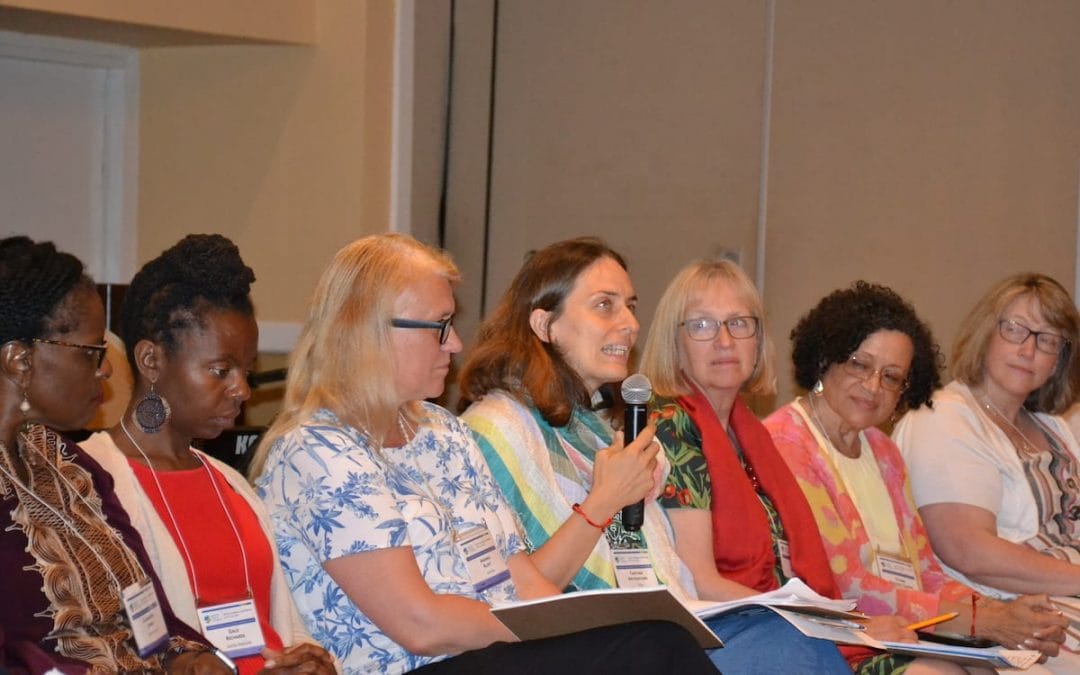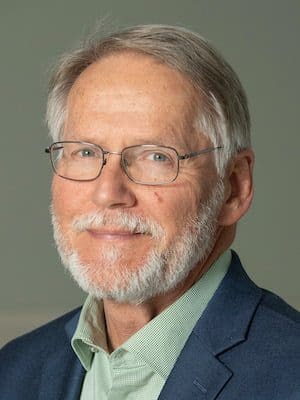The 2019 Baptist International Conference on Theological Education (BICTE) wrapped up July 7 with a panel discussion featuring 11 representative global pastors, counselors, and theologians responding to questions raised by participants in the meeting, which drew about 200 participants.

Cristina Arcidiacono, a Baptist pastor in Italy, speaks to a question during the closing panel discussion.
BICTE conferences are held approximately every five years. I attended conferences in Prague (2008) and Jamaica (2013). I confess that I don’t remember the theme of either one, but I’m confident I will remember this one — which also drew twice as many participants as I’ve seen at a BICTE conference before.
The first plenary session (see my blog on it here) dealt with unique contributions of women in ministry. Central Baptist Seminary president Molly Marshall’s presentation and the comments of three respondents were enlightening.
“Baptist Women and Spiritual Formation Across Generations” was the theme of the second plenary. Presenter Eiko Kanamaru of Japan was unable to attend, but her paper was read to the group. It didn’t speak directly to the topic, but offered an inspiring biography of Akiko Matsumura as an “incarnation of faith” and “a model of Japanese Baptist women’s spirituality.”
The third session featured an informative paper by Valérie Duval-Poujol of France on how Bible translations have affected women’s engagement in church and society. You can read about it, and the several responses, in a more detailed blog here.
“The Place of Women in a Baptist Theology of Ministry” was highlighted in the fourth session, where British theologian Paul Fiddes read a well-reasoned paper arguing that a Baptist theology not only should encourage women in ministerial roles, but must do so if it is to be biblically faithful.
The fifth session was to address “Oppressed Baptist Women and How They Shape the Church Today.” André Bokundoa-Bo-Likabe of the DR Congo was to present but could not attend, so his paper was read by Dennis Kilama, an African colleague. His paper called on men and women to work together under the Lordship of Christ, but did not really address the topic, leaving the assigned responders to struggle in responding to the paper while also touching on the theme of how the oppression of Baptist women has contributed to their influence in the church. AK Lama of India described a situation in his country in which women make up the majority of the church but have virtually no elected leadership positions.

Louise Kretzschmar of South Africa (right) responds to a paper by Regina Sudheer Alexander of India (second from right) as Elizabeth Newman of the U.S. and Guilherme Almeida of the U.S. and Brazil look on.
The final presentation focused on “Vocational Call: Family, Society, and Ministry.” Presenter Regina Sudheer Alexander of India related a variety of intriguing stories about women who have contributed to the life of the church — or to the health and well-being of other people — even when they had to overcome rejections and obstacles, becoming entrepreneurial in their approach to ministering in a variety of capacities.
The closing panel responded to a number of questions including things like “What’s one mistake women ministers make when things don’t go their way?”, “Why are male pastors so set in their ways and unwilling to accept women ministers?”, “What are things of which BWA members need to repent?”, and “How do women survive the lack of recognition in the church?” Panelists not only responded to the questions, but shared stories or insights from their own lives and experiences.
One could wish that more could hear the wisdom they shared.


